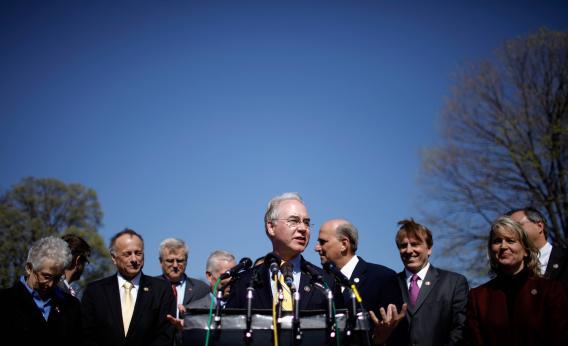Good news, everyone! The House has passed the PLAN Act—the Require Presidential Leadership and No Deficit Act of 2013, if you’ve got some problem with acronyms. Sponsored by former Republican Study Committee chairman and possible Senate candidate Tom Price, it requires President Obama to either 1) propose a budget that balances at some point in the future or 2) propose whatever budget he likes, plus a “supplemental unified budget” that balances at some point, a footnote longer than anything in David Foster Wallace’s dreams.
It’s the latest act in our continuing Republican drama—the shifting of the “irresponsibility” crown from their heads to President Obama’s. The thing about budgets is that they don’t ever get passed in original form. “Budgets” don’t even set the government’s spending for the year. Spending resolutions do.
Here: In May 2012, the House passed a “sequester replacement” bill that eliminated all planned defense cuts and turned them into non-defense discretionary cuts. That, they hoped, would allow them to portray President Obama as irresponsible. But that bill didn’t specify where the cuts would be, specifically. That work was kicked to December 21, in a spending resolution that delineated what would be cut to pay for the cost of the hated sequester.
It’s the only recent example of Republicans doing this. (Even Paul Ryan’s budgets did not explain what would get hit with planned non-defense discretionary spending cuts.) The resolution took chunks out of Obamacare, Medicaid, and job training, and passed by a one-vote margin. Some of the members who made up that margin had lost re-election. It’s not clear at all that a similar sequester replacement would pass again. And it is clear that the Senate would never pass it as-is.
Thus, another bill that shifts the onus of explaining “how exactly we’re going to pay for all this stuff” back to the White House.
